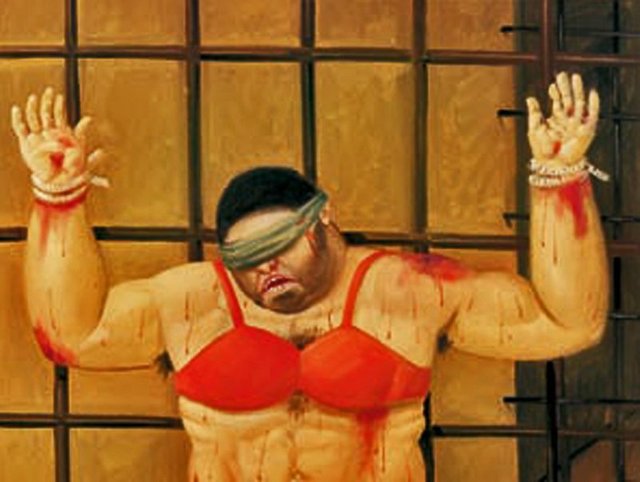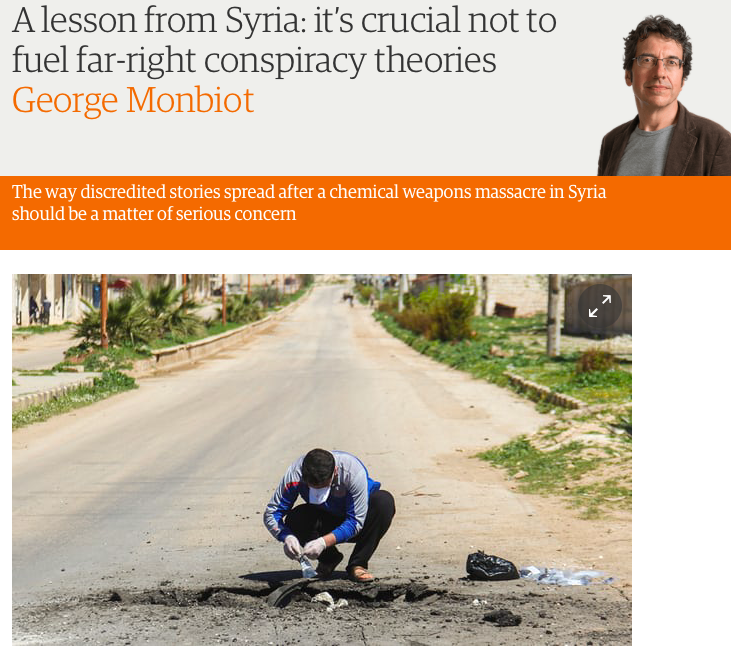Pulitzer-Prize winner Seymour Hersh, John Pilger, and Noam Chomsky are considered ‘Far-Right conspiracists’ in the sycophantic new school of journalism.
Manadel al-Jamadi hung from the rungs of a barred window, his hands behind his back in a style known as a Palestinian hanging. American troops beat him and demanded the whereabouts of a non-existent weapons cache into the unconscious face of the Iraqi prisoner. A face that was hidden under a green bag and hanging down over his droopy shoulders displacing from their sockets from gravity's force pushing his limp body down to the cold ground of his cell.

Half an hour passed, and the jovial Americans soldiers started to think that the sorry Iraqi man was cheating them by playing dead ‘like a possum’, and released him from his stress position. They then realised that the prisoner had no pulse.
Such harrowing scenes from the Abu Ghraib prison in Iraq would forever remain unknown to the American public who pay the soldiers in question if it weren't for the relentless muck-raking of the world’s most accomplished investigative reporter, Seymour Hersh. Hersh won the Orwell award for his exposé, to add to his collection alongside his Pulitzer he gained in 1970 for his work on the My Lai massacre in Vietnam.
However, for the ‘fake news’-conscious crop of journalists in 2017, Hersh is a ‘far-right conspiracist' and ‘unhinged’ for his willingness to confront power rather than parrot its claims ad nauseam.
In his Guardian column, John Monbiot argues that Hersh, alongside journalist and documentary maker John Pilger, and , even more strangely, the left-wing academic Noam Chomsky are all guilty of spreading 'far-right conspiracy theories' surrounding the sarin attack on the Syrian town of Khan Shaykun.

He makes the point that a couple of months ago the Organisation for the Prohibition of Chemical Weapons (OPCW) released a report which conclusively determined that the Assad regime is responsible for the atrocity. Therefore, according to Monbiot, every journalist who dared question Donald Trump's retaliatory strikes on a Syrian airbase which occurred almost six months before the official report concluded that Assad was guilty, and before third-party actors were allowed anywhere near the scene, were responsible of huge crimes against journalism.
For their attempts to balance out the various facts and potential theories - none of which that had yet been proven nor disproven due to the lack of access that international bodies had to the site, and , by extension, the lack of an official verdict on the culpability - these three men are equatable to talk-show conspiracist Alex Jones and various Twitter trolls, Monbiot argues.
George Orwell once said, 'journalism is printing what someone else does not want printed: everything else is public relations'. For the current iteration of reporters and commentators who line the halls of the Guardian and the New York Times, however, being branded a PR man is no longer the cardinal journalistic sin; instead, the constant fear of being forever confined to the tin foil zone - of cabals, conspiracies and the government putting chemicals in the water to turn the frogs gay - is the real career killer.
It goes without saying that objectivity is objectively a good thing, but it should always be served alongside a healthy portion of skepticism and cynicism in order to balance the playing field. Cold, hard, news-wire style reporting is, of course, naturally weighted in favour of the establishment. Government ministers are naturally considered more 'relevant' than think-tanks or dissidents, despite the fact that experts are more likely to fall in the last two categories. The result is that politicians are effectively handed blank space on the front page of newspapers, in which they can shape the narrative however they wish.
This atmosphere of press sub-ordinance led to us jumping head first into the Iraq War; a mindless US grab of resources and geopolitical capital which cost a million lives, assisted by the UK for no reason other than a wish to remain relevant. The man who Monbiot criticises, John Pilger, researches this in his documentary 'The War We Don't See'.
At a time when the free press is increasingly under attack - when Google is increasingly censoring alternative news outlets and public broadcasters are having to register as foreign agents - it isn't helpful for a journalist to turn on his own and accuse the most accomplished members of his profession of being 'conspiracy theorists' for asking questions.
One of the more promising side-effects of the Trump era is that mainstream press outlets are beginning to once again show some spine; the Washington Post and the New York Times have regained a scepticism that was suspiciously absent during Obama's drone wars and his expansion of the NSA. Better late than never.
The glare of the media spotlight has meant that Trump's most potentially damaging policies - the wall, the repeal of Obamacare, the Muslim ban - have either failed or been significantly stripped-back as a result of relentless press interrogation , by journalists who could be derided as 'conspiracists' but instead are more accurately lauded as fearless muckrakers.
When it comes to war, however, it remains business as usual. The government line is the the only line, and anyone who dares poke their nose into proceedings must be wearing a tin foil hat.
great topic , good luck
thank you for sharing
have a nice day
Thanks for sharing @thatsnumberwang ... Love the Orwell quote!!